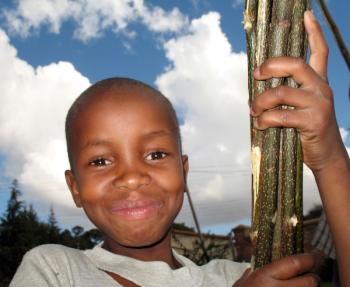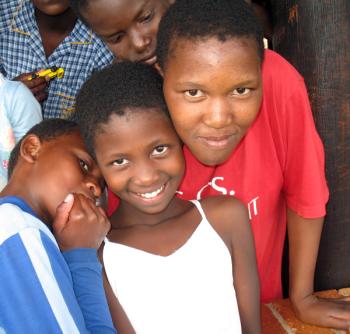One of the country's poorest regions

The small town of Nhlangano has a population of just over 9,000 and is located in the south-west of Eswatini in Shiselweni District, which has a population of over 240,000. Shiselweni is one of the country’s poorest regions, especially in rural areas. The distribution of wealth remains extremely unequal in Eswatini: the richest 20 per cent of the population hold around 55 per cent of wealth whilst the poorest 20 per cent of Swazis hold only 4.3 per cent.
In 2011, Eswatini was hit by a severe economic crisis which caused the breakdown of public facilities and services. Public sector workers, including teachers, university professors, and hospital staff, did not receive their wages. Most schools closed down, as did the university. Hospitals feared running out of medicines because the companies supplying them had not been paid and fuel shortages prevented transportation. In the past few years, the situation has improved gradually, as strict measures were introduced and international aid was secured. However many more changes need to take place before the lives of families improve.
HIV/AIDS continues to impact the lives of thousands of children
For the already struggling population of Eswatini, these recent developments have had terrible effects. In rural areas, over 60 per cent live in poverty. A quarter is infected with HIV and life expectancy is one of the lowest in the world. Children and young people are hit the hardest: thousands of children have lost their parents to HIV and now fend for themselves. A quarter of all children drop out of primary school. Children who have lost parental care, or those living in vulnerable households (for example those affected by HIV/AIDS) are least likely to complete their basic education.
Unemployment is incredibly high in the country, but it is highest amongst the younger generation who are just setting out on their life and career paths: over half of them are unemployed. Many people resort to making a living in the informal sector, selling small merchandise or homemade foods in the streets. This lifestyle is extremely insecure as there is no regular wage, no support in times of illness, during pregnancy, or in old age.
What we do in Nhlangano

SOS Children’s Villages began its work in Nhlangano in 2001. For children from the region who are no longer able to live with their parents, eleven SOS families can provide a loving home for up to 110 children. In each family, the children live with their brothers and sisters, affectionately cared for by their SOS mother. The children attend the SOS Kindergarten in Nhlangano together with children from the neighbourhood, which ensures that they are integrated into the local community from a young age.
The SOS Youth Programme continues to support young adults once they have moved out of their SOS family home in order to study, receive training or work.
The SOS Family Strengthening Programme here supports vulnerable families so that they do not break down due to poverty or social problems. We ensure that children have access to essential health and nutritional services, as well as education. We provide food assistance, literacy classes, and help with the renovation of homes. We assist parents by providing guidance on income-generating skills, individual and communal food production, parenting practices, as well as counselling and psychological support where needed. Our support goes out especially to families who have been affected by HIV/AIDS. In cooperation with local organisations, we also work towards strengthening the support systems for vulnerable families within the community.
The SOS Medical Centre in Nhlangano treats adults and children, providing basic medical care, preventive medicine, as well as voluntary testing, counselling and treatment for those affected by HIV/AIDS. All services are open to the community, enabling many families to receive treatment and medicine who could not otherwise afford it.